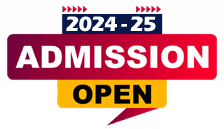Facilities
World College of Pharmaceutical Sciences offers a range of facilities to support the education, research, and professional development of its students and faculty. Here are some common facilities to mention:
• Classrooms and Lecture Halls: Well-equipped classrooms and lecture halls provide a conducive environment for students to attend lectures, discussions, and interactive sessions with faculty members.
• Laboratories: Various types of laboratories are essential for pharmacy education, allowing students to gain hands-on experience and practical skills.
• Pharmaceutical Chemistry Lab: Equipped with instruments and equipment for chemical analysis, drug synthesis, and formulation development.
• Pharmaceutics Lab: Provides facilities for compounding, formulation development, dosage form preparation, and drug delivery system studies.

• Pharmaceutical Analysis Lab: Includes advanced instruments and equipment for qualitative and quantitative analysis of drugs, quality control, and testing procedures.
• Pharmacy Museum: It serves as an educational resource, showcasing the evolution of pharmacy practice over time.
• Pharmacology and Pharmacotherapeutics Lab: Equipped with animal models, tissue culture facilities, and equipment for conducting experiments related to drug action, pharmacological screening, and therapeutic interventions.
• Library and Information Resources: A well-stocked library with a comprehensive collection of textbooks, reference materials, scientific journals, and online databases crucial for academic and research pursuits is available. Access to e-books, online journals, and databases which provides students and faculty with the latest information and research articles in the field of pharmacy.

• Computer and IT Facilities: Computer lab equipped with software for data analysis, modeling, simulation, and pharmaceutical software applications support pharmacy education and research. Access to online learning platforms, and e-learning resources that enhance digital learning and research capabilities.
• Cafeteria and Recreational Area: A cafeteria or food court within the college campus provides students and faculty with a place to relax, socialize, and grab meals. Recreational facilities promote physical well-being and extracurricular activities.
• Administrative Office: Administrative office handles various functions related to admissions, student affairs, faculty administration, examinations, and general administration. It serves as a point of contact for students and staff to address administrative queries and concerns.





